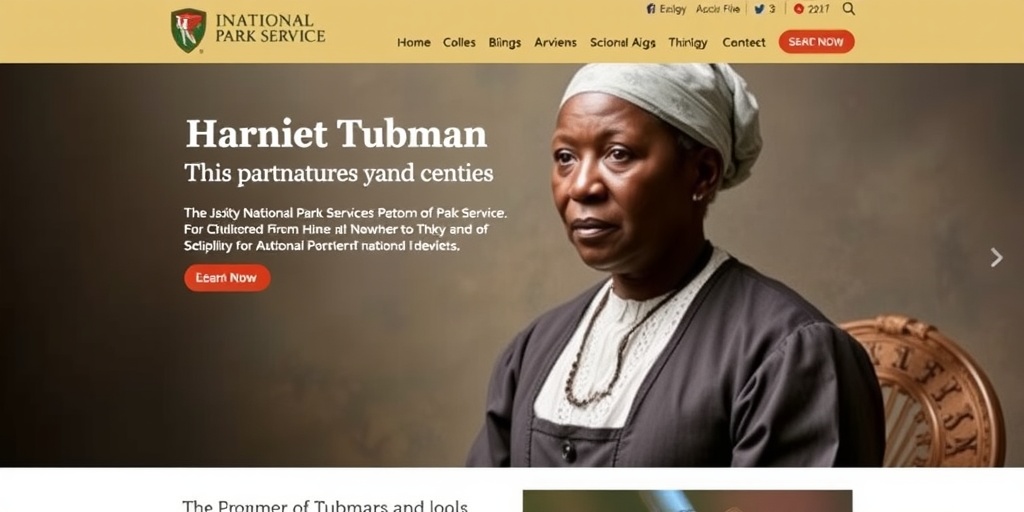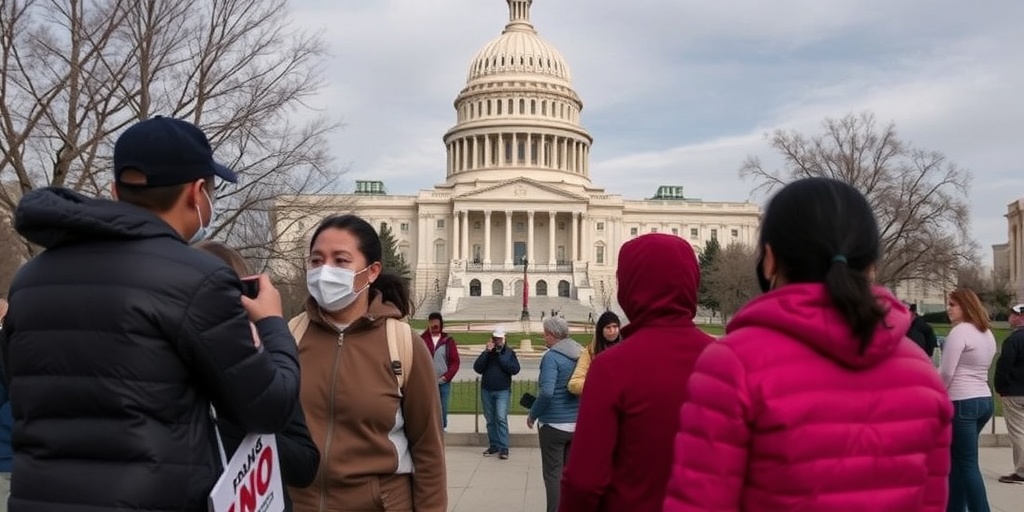Now Reading: National Park Service Revives Harriet Tubman Web Page
-
01
National Park Service Revives Harriet Tubman Web Page
National Park Service Revives Harriet Tubman Web Page

Title: Controversy Surrounds National Park Service’s Undercurrents of Historical Revisionism Amid Changes to Underground Railroad Page
The recent restoration of a National Park Service (NPS) web page dedicated to the Underground Railroad has sparked controversy and renewed discussions about the representation of African American history in government materials. Particularly, the page prominently features abolitionist leader Harriet Tubman, a significant historical figure in the fight against slavery. This restoration, occurring on Monday, comes in the wake of significant changes made earlier this year that led to the removal of Tubman’s image and quotes, raising concerns about a potential cultural and historical oversight within government agency narratives.
In February, the web page experienced an overhaul that shifted its focus to illustrations of postage stamps that highlighted themes of “Black/white cooperation.” This altered content emphasized a narrative of unity, stating that the Underground Railroad “bridged the divides of race” and other differences among American society. The changes drew immediate backlash and were first reported by major media outlets, including The Washington Post, captivating public interest in the idea of historical revisionism intersecting with modern political narratives.
The National Park Service has since acknowledged that these alterations were made “without approval” from the agency’s leadership, leading to the swift restoration of the original version that features Tubman and acknowledges her crucial role in American history. A spokesperson from the NPS articulated the agency’s commitment to preserving accurate historical representations but did not provide further details when pressed for comment.
This episode is not an isolated incident. It appears to be part of a broader pattern of editing and sometimes obscuring historical narratives across government websites during the Trump administration. Multiple reports have emerged suggesting that efforts are underway to eradicate references to diversity, equity, and inclusion across various federal sites. For instance, critical materials concerning the Arlington National Cemetery, such as tributes to the graves of Black and female service members, have been either removed or inadequately highlighted. Notably, an article about baseball legend Jackie Robinson’s military contributions vanished from the Defense Department’s website, only to reappear after public outcry, highlighting the sensitive dynamics of how history is presented at governmental levels.
In light of these changes, Senator Chris Van Hollen of Maryland, a prominent Democrat, voiced strong opposition, accusing the Trump administration of attempting to "whitewash" history. Van Hollen expressed his concerns through a post on X, formerly Twitter, arguing that the administration’s actions undermined the significance of the Underground Railroad and disrespected Tubman’s legacy. He firmly stated, “The Underground Railroad is an important part of the American story. We cannot let [the Trump administration] whitewash it as part of his larger effort to erase our history.” Such remarks resonate with broader public sentiments regarding the importance of a comprehensive and inclusive understanding of American history.
The issue, of course, transcends merely the question of historical accuracy; it taps into critical conversations surrounding who gets to narrate the story of a nation and how various constituents are represented in that narrative. The removal or alteration of significant figures such as Tubman, a cornerstone of the abolition movement, exemplifies a concerning trend that not only risks oversimplifying complexities of American history but also may erase significant contributions and sacrifices made by marginalized groups.
As calls for accountability among federal agencies grow stronger, stakeholders are encouraged to advocate for a historical narrative that encompasses the diverse experiences that truly represent the fabric of America. The importance of recognizing and integrating these experiences into educational frameworks remains critical, particularly in light of increasing polarization regarding historical interpretation. Federal agencies, including the National Park Service, play a vital role in shaping public understanding of history, and their narratives should reflect a commitment to authenticity, restoration, and inclusivity.
Looking ahead, this incident challenges not only the NPS but all government entities to critically examine their roles in historical representation. The restoration of the Underground Railroad page marks a step towards correcting narrative discrepancies, but it also serves as a reminder of the ongoing struggle to ensure that all voices, particularly those of historically marginalized groups, are acknowledged and honored in America’s enduring national narrative. As society continues to grapple with its past, the quest for an accurate and inclusive historical representation remains paramount in educational and political discussions alike.
Stay Informed With the Latest & Most Important News
Previous Post
Next Post
-
 01New technology breakthrough has everyone talking right now
01New technology breakthrough has everyone talking right now -
 02Unbelievable life hack everyone needs to try today
02Unbelievable life hack everyone needs to try today -
 03Fascinating discovery found buried deep beneath the ocean
03Fascinating discovery found buried deep beneath the ocean -
 04Man invents genius device that solves everyday problems
04Man invents genius device that solves everyday problems -
 05Shocking discovery that changes what we know forever
05Shocking discovery that changes what we know forever -
 06Internet goes wild over celebrity’s unexpected fashion choice
06Internet goes wild over celebrity’s unexpected fashion choice -
 07Rare animal sighting stuns scientists and wildlife lovers
07Rare animal sighting stuns scientists and wildlife lovers




















